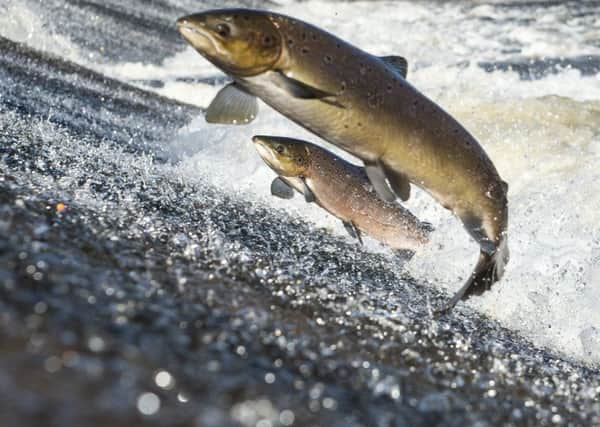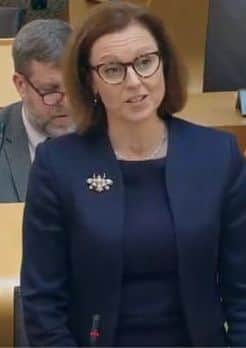River Tweed salmon catch continues to fall


According to the River Tweed Commission’s (RTC) 2018 annual report, released this week, last season’s official overall salmon catch figure was 6,129 – including 5,644 by rod.
The previous year, 7,003 salmon were caught, 6,577 by rod.
The spring catch in 2018 was low, with 1,083 salmon being caught by rods – echoing a similar situation in rivers throughout Scotland.


Advertisement
Hide AdAdvertisement
Hide AdIn his report, RTC chairman Douglas Dobie said: “With 2018 seeing another year of low salmon and sea-trout catches, this will inevitably lead to fewer rod days let in advance and pressure on rental levels.
“It is a bleak picture, and the RTC has had to respond positively to very challenging circumstances.
“Fishing conditions, coupled with lack of fishing effort – especially early on in the season, made it difficult to assess how many fish may have entered the river, and sea survival certainly impacted on the catch.”
Mr Dobie said that the organisation was doing all it could to minimise impacts to fish from predation.
Advertisement
Hide AdAdvertisement
Hide AdEarlier this week, Rachael Hamilton, MSP for Ettrick Roxburgh and Berwickshire, invited Mairi Gougeon, the minister for rural affairs, to meet with her to discuss the decline of salmon stocks on Scotland’s rivers, and called on the Scottish Government to take urgent action.
She was joined by anglers and members of angling associations in Holyrood where there was agreement across the political spectrum that more should be done to revive wild fisheries.
Concerns included increasing numbers of predatory birds eating juvenile salmon, extensive drift netting along the coastline, as well as the impact of climate change and the lack of a sufficient river management plans.
Mrs Hamilton said: “I look forward to meeting with the minister to discuss how we can work constructively to ensure we don’t see this decline in salmon fishing continue.
Advertisement
Hide AdAdvertisement
Hide Ad“Our rivers are our greatest asset, especially the River Tweed in the Borders. It simply cannot continue that rod catches fall year on year.”
Last month, South of Scotland list MSP Claudia Beamish, who is a member of the environment, climate change and land reform committee, said: “The downward trend does reinforce the need for ongoing measures to manage the way in which rivers are fished.
“For some rivers this means a mandatory catch and release policy and for others there is scope to retain some catch.”
More than 90% of all fish caught by anglers are returned to the water.
Ms Beamish said: “Angling is extremely important to our rural economy and for local leisure so it is vital that it is done sustainably so we can ensure it has a future.”